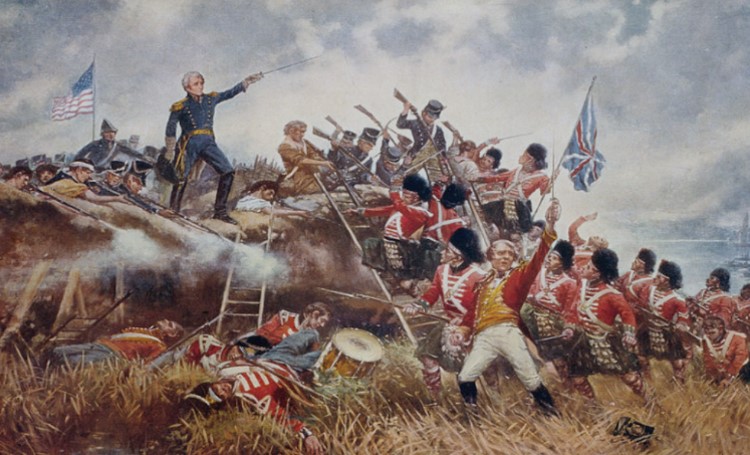
Battle of New Orleans.
Thursday, May 16, 2024
Andrew Holmes
Monday, May 13, 2024
After the Battle of Longwoods-- Part 2
The Battle of Longwoods represented a major turning point in the war in the London district. The British subsequently withdrew from Delaware to Burford, turning this part of Upper Canada into a no-man's land.
It was subject to American raids from Detroit against area farms in search of food and supplies. It is 126 miles between London and Detroit.
Settlers in the Thames Valley were constantly robbed and pillaged. Many frightened families abandoned their farms and did not return when the war ended in late 1814.
--Brock-Perry
Saturday, May 11, 2024
After the Battle of Longwoods
Still from the HMdb.
This is a Canadian marker erected in 2014.
After an hour of continuous gunfire exchange, the British began to withdraw. Soon the area was empty, except for the dead British regulars.
Even though his men had won a clear victory, Captain Andrew Holmes would not allow them to rob the dead British soldiers of their shoes and clothes, in respect for the bravery they had shown.
The American casualties amounted to 5 killed and 3 wounded.
Captain Holmes and his officers were concerned that the British would counter attack and they also withdrew.
--Brock-Perry
Wednesday, May 8, 2024
Battle of Longwoods-- Part 5: American Forces and Casualties
From HMdb.
AMERICAN FORCES
Commanded by Captain Andrew Hunter Holmes
24th U.S. Infantry
27th U.S.Infantry
28th U.S. Infantry
Michigan Mounted Infantry
Michigan Militia Cavalry
***************************************
CASUALTIES (Killed)
Philip Beard, Levi Bunnell, Joseph Donahue, Thomas Watkins, Eri Wooden
--Brock-Perry
Tuesday, May 7, 2024
Battle of Longwoods-- Part 4: British Forces and Casualties
From HMdb.
British forces at the battle:
Commanded by Captain James Basden
Royal Scots Light
Western (Caldwell) Rangers
89th Foot Light
Kent and Middlesex Militia
British Indian Department
**************************
SOME OF THE BRITISH CASUALTIES
Captain D. Johnstone
Lieut. P. Graeme
John Bunn, Wm. Condon, Thom Connors, John Hazeldine, James Hogan, Tomas Jones, Thomas Murphy, Wm. Shaw, James Sheldon, Alex Smith, Abraham Taylor, Uriah Trimm, Lawrence Wall
--Brock-Perry
Sunday, May 5, 2024
Battle of Longwoods-- Part 3
Although Andrew Holmes had defeated the British, he knew he was outnumbered and decided he would be unable to capture the post at Delaware. At 9 p.m., a short time after the British retired from the field, he abandoned his position at Twenty Mile Creek where the battle was fought and retreated to Detroit.
The British later abandoned their outpost at Delaware.
However, two American six-pounder guns which Holmes had abandoned near Pointe au Pelee were discovered by a Canadian militia unit who destroyed their carriages and concealed the guns in a black ash swamp where they remained until the end of the war.
Holmes was promoted to major, but was killed a few months later at the Battle of Mackinac Island. The British commander, British Captain James Lewis Basden had been wounded at the Battle of Longwoods, recovered and later fought at the Battle of Lundy's Landing.
The battle site was designated a National Historic Site of Canada in 1924.
--Brock-Perry
Thursday, May 2, 2024
Battle of Longwoods-- Part 2
In the aftermath of Harrison's withdrawal, there was what essentially amounted to a no war. The British established outposts at Delaware and Port Talbot. On 23 December 1813, the garrison at Delaware surprised and captured a small American post near Chatham.
The American commander at Amherstburg, Lt. Col. Anthony Butler sent an expedition under Captain Andrew Holmes, to capture one of the two British posts. They left 21 February 1814 but met problems with weather and hunger.
The Americans fell back to a hill and fortified it. A sharp firefight took place on March 4.
The next day, some 240 British troops along with their Canadian militia and Indian allies clashed with the American force of 164. An attempt was made to outflank the Americans while a direct attack was made on their center.
As dark fell, the entire British force retreated.
British losses were 14 killed, 51 wounded, 1 wounded prisoner and 1 missing. American losses 4 killed and 3 wounded.
--Brock-Perry
